Cinnamon roll cake is a delightful twist on the classic cinnamon roll, combining all the warm, sweet flavors into a convenient, easy-to-make cake form. This cake brings together the soft texture of a traditional roll and the rich, gooey swirls of cinnamon, offering the perfect treat for breakfast, dessert, or any time in between. Unlike the traditional process of rolling dough, this cake is much simpler, making it an ideal choice for busy bakers who still want that freshly baked, cinnamon aroma filling their kitchen.
In this article, you’ll learn how to make this irresistible cake with simple ingredients you likely already have in your pantry. For those interested in baking tips and variations, be sure to check out the baking tips and tricks available on Pinterest for ideas on perfecting your bake. Additionally, understanding the role of ingredients like baking powder can ensure your cake has the perfect rise every time, as explained on Wikipedia.
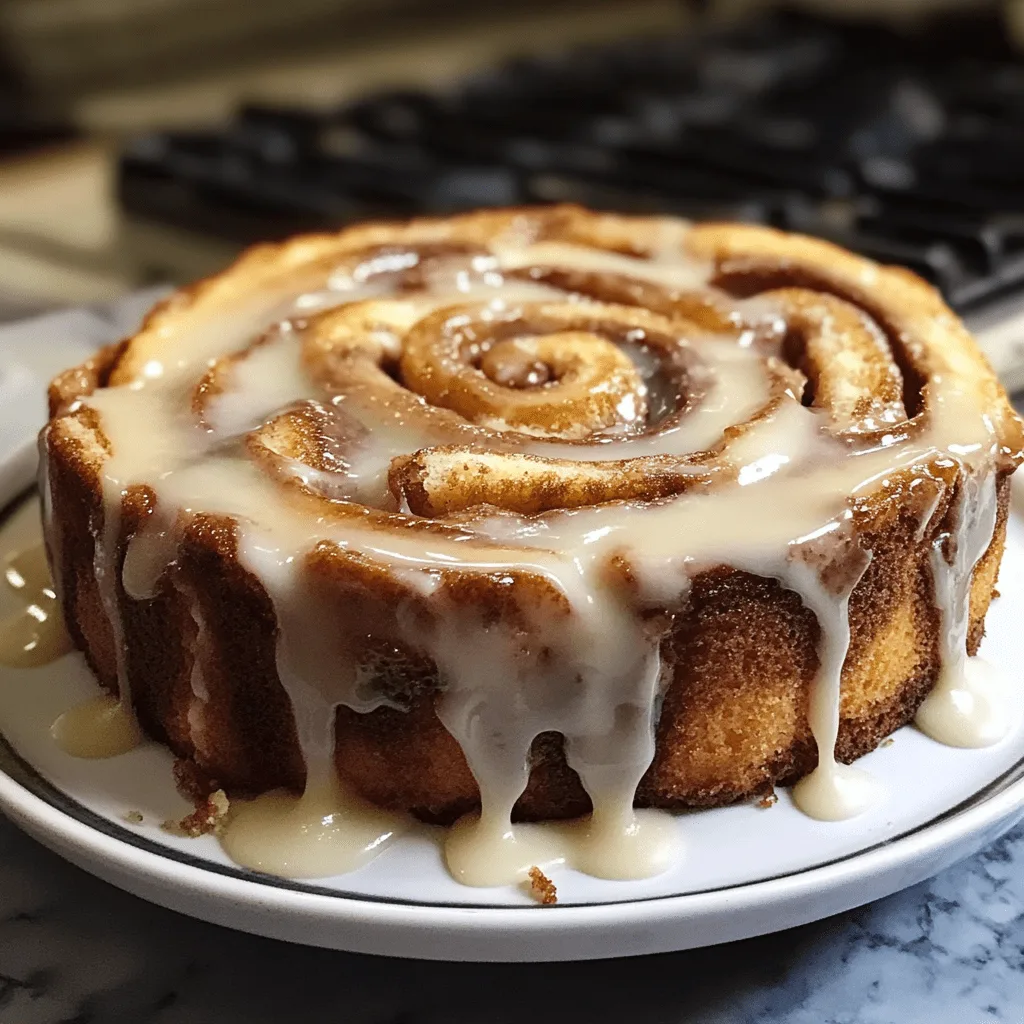
Ingredients Overview
The cinnamon roll cake recipe is divided into three main components: the bottom layer, the top layer, and the glaze. Each plays a crucial role in achieving the cake’s signature flavor and texture:
- Bottom Layer: This is the cake base, made with:
- 3 cups all-purpose flour
- 1 ½ cups milk
- 1 cup white sugar
- 2 eggs
- 4 teaspoons baking powder
- 2 teaspoons vanilla extract
- ¼ teaspoon salt
- ¼ cup melted butter
The flour provides structure, while the baking powder helps the cake rise. The milk, eggs, and butter contribute to its moist, tender crumb.
- Top Layer: This layer, consisting of butter, brown sugar, flour, and cinnamon, adds the classic cinnamon roll flavor. When swirled into the base layer, it creates a rich, marbled effect.
- Glaze: A simple combination of confectioners’ sugar, milk, and vanilla extract drizzled over the cake, providing a sweet, finishing touch.
For more about the history and uses of cinnamon, you can check out this resource on Wikipedia. You can also explore variations of this cake on Pinterest to make your baking experience even more personalized.
Ingredient Substitutions and Modifications
If you need to modify the ingredients, there are several easy options. For a dairy-free version, substitute almond milk or oat milk instead of regular milk. If you want to make the cake vegan, you can replace the eggs with flaxseed eggs (1 tablespoon ground flaxseed mixed with 3 tablespoons water per egg) and use a plant-based butter alternative.
For those looking to reduce the sugar content, consider using sugar substitutes like stevia or monk fruit. These alternatives can provide sweetness while lowering the overall sugar intake. If you prefer a gluten-free option, using a gluten-free all-purpose flour blend works well, but make sure it includes a binder like xanthan gum for proper texture.
For more information on various types of flour and their uses in baking, this Wikipedia article is a helpful resource: Types of Flour.
Directions and Baking Techniques
Step-by-Step Directions
Making the cinnamon roll cake is a straightforward process that anyone can follow. Here’s how to create this delicious dessert in just a few steps:
- Preheat and Prepare: Begin by preheating your oven to 350 degrees F (175 degrees C). Grease a 9×13-inch baking pan to prevent sticking.
- Mix the Bottom Layer: In a large bowl, combine 3 cups of all-purpose flour, 1 ½ cups of milk, 1 cup of white sugar, 2 eggs, 4 teaspoons of baking powder, 2 teaspoons of vanilla extract, and ¼ teaspoon of salt. Stir these ingredients until well-combined, then add in ¼ cup of melted butter. Pour the batter into the prepared pan.
- Prepare the Top Layer: In another bowl, mix 1 cup of softened butter, 1 cup of brown sugar, 2 tablespoons of flour, and 1 tablespoon of ground cinnamon. This mixture should be smooth and creamy. Drop spoonfuls of this mixture over the bottom layer batter in the pan.
- Create the Swirl: Using a knife, swirl the top layer mixture into the bottom layer to create a marbled effect. Be careful not to over-mix; you want distinct layers for that classic cinnamon swirl appearance.
- Bake: Place the pan in the preheated oven and bake for 25 to 30 minutes. Check for doneness by inserting a toothpick into the center; it should come out mostly clean, with a few moist crumbs attached.
Following these steps will ensure your cake turns out perfectly every time. For a deeper understanding of how the ingredients like sugar work in baking, you can explore this Wikipedia article on sugar. Additionally, exploring glazing techniques on Pinterest can help you achieve the perfect finish for your cake.
Creating the Perfect Swirl
The swirl effect is essential for the signature look and taste of the cinnamon roll cake. To achieve this:
- Technique: Use a knife to drag the top layer mixture through the bottom layer in a swirling motion. Make sure the knife reaches the bottom of the pan so the flavors blend properly.
- Avoid Over-mixing: It’s important not to overdo it; just a few swirls will give the cake a marbled appearance without blending the layers too much.
- Troubleshooting: If you find that the batter sinks or the swirl isn’t visible after baking, ensure that your top layer mixture is thick enough. Adjusting the amount of flour in the top layer can help create a firmer consistency that stays on top as you swirl.
For more on creating the perfect cake swirl, Pinterest has plenty of visuals and tips under glazing techniques that complement the cinnamon roll cake preparation.
Baking Tips and Tricks
Achieving the perfect cinnamon roll cake is all about the details:
- Doneness Test: The best way to check if your cake is done is by using the toothpick method. Insert a toothpick into the center; if it comes out mostly clean (a few crumbs are okay), the cake is ready. The edges should also be golden brown, and the top should feel slightly springy when touched.
- Cooling: Allow the cake to cool slightly before applying the glaze. This helps the glaze set properly without soaking too much into the cake, giving it that perfect drizzle effect.
- Baking Pan Adjustments: If using a smaller pan (e.g., 9×9-inch), you may need to extend the baking time slightly to ensure the center is fully cooked. For larger pans, reduce the time to prevent overcooking. Keep a close eye on the cake during the last few minutes of baking.
If you’re interested in the history of baking and how techniques have evolved, check out the Wikipedia article on cakes. You can also explore various baking tips and tricks on Pinterest to perfect your technique and adapt the recipe to suit your needs.
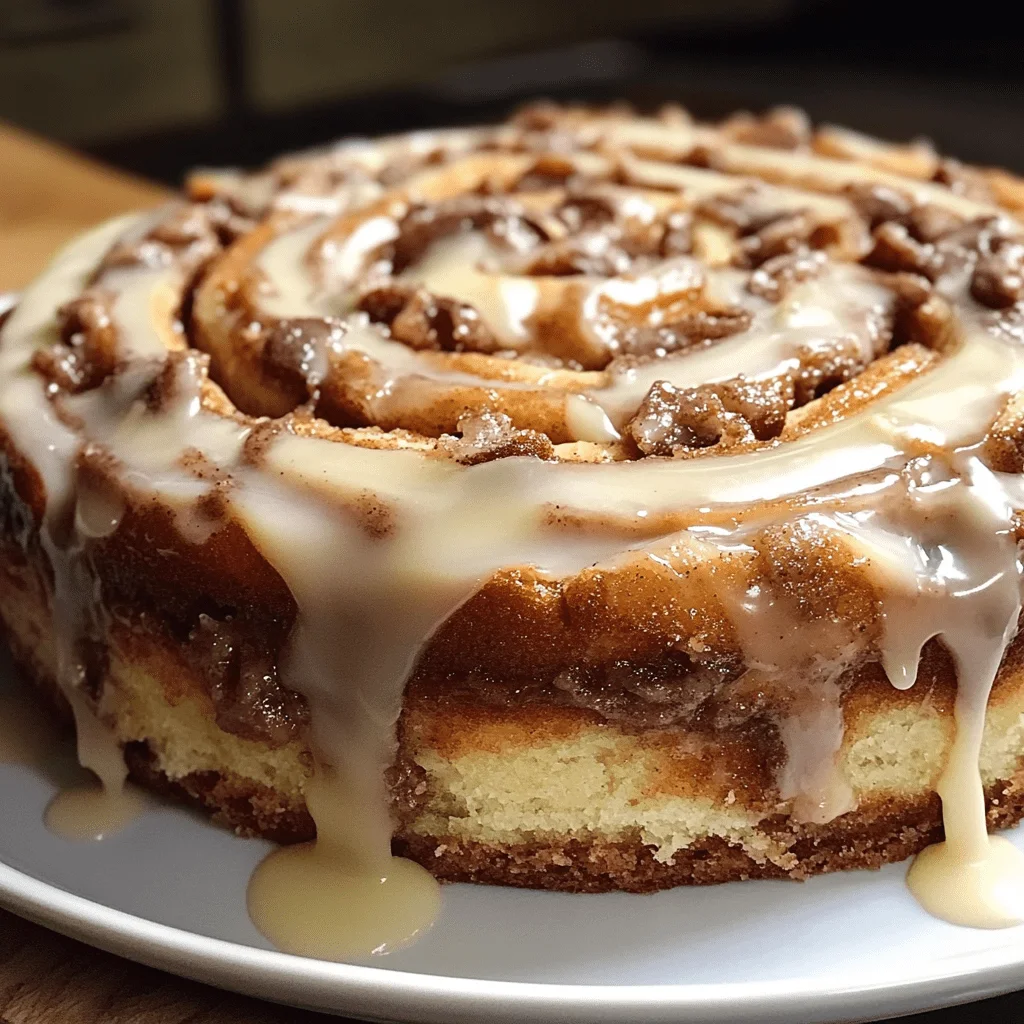
Glazing and Serving
Glaze Preparation
The glaze is the finishing touch that makes the cinnamon roll cake so delectable. Here’s how to prepare the perfect glaze:
- Ingredients:
- 2 cups of confectioners’ sugar
- 5 tablespoons of milk
- 1 teaspoon of vanilla extract
- Mixing: In a large bowl, combine the confectioners’ sugar, milk, and vanilla extract. Stir until the mixture is smooth and reaches a pourable consistency. If the glaze is too thick, add a little more milk, one teaspoon at a time. If it’s too thin, add a bit more confectioners’ sugar until you achieve the desired texture.
- Flavor Variations: For a unique twist, consider adding different flavors. Almond extract can give the glaze a nutty aroma, while a dash of lemon zest adds freshness. You could also try cinnamon for an extra layer of flavor that complements the cake.
For more inspiration on glazing techniques, Pinterest is a fantastic resource to explore various methods that suit different cakes. Additionally, to understand how vanilla extract influences flavors, this Wikipedia article offers valuable insights.
Tips for Drizzling the Glaze
Drizzling the glaze over the cake is both an art and a science. To get the best results:
- Drizzle on Warm Cake: For a glaze that seeps into the cake, drizzle it while the cake is still warm. This method allows the glaze to be absorbed, adding moisture and flavor throughout.
- Cool Cake for a Drip Effect: If you prefer the glaze as a topping, wait until the cake has cooled completely. Use a spoon or a piping bag to drizzle the glaze evenly over the top, letting it drip down the sides for a professional finish.
- Piping Technique: To achieve that bakery-style look, you can use a piping bag for precise control. This works especially well for creating decorative patterns or distributing the glaze evenly.
For more glazing techniques and visuals, check out Pinterest to get inspired on how to make your cake presentation stand out.
Serving Suggestions
The cinnamon roll cake is versatile and perfect for various occasions. Here’s how you can serve it:
- Cutting and Serving: Slice the cake into squares for easy serving. For brunch, smaller pieces pair well with coffee or tea, while larger servings work great as a dessert with whipped cream or ice cream.
- Toppings and Pairings: Enhance the cake’s flavors by serving it with a scoop of vanilla ice cream or a dollop of whipped cream. Chopped nuts like pecans or walnuts sprinkled on top can add texture and a rich, nutty taste.
- Storage Tips: Store any leftover cake in an airtight container at room temperature for up to three days. To reheat, warm individual slices in the microwave for about 15 seconds for a fresh-from-the-oven taste.
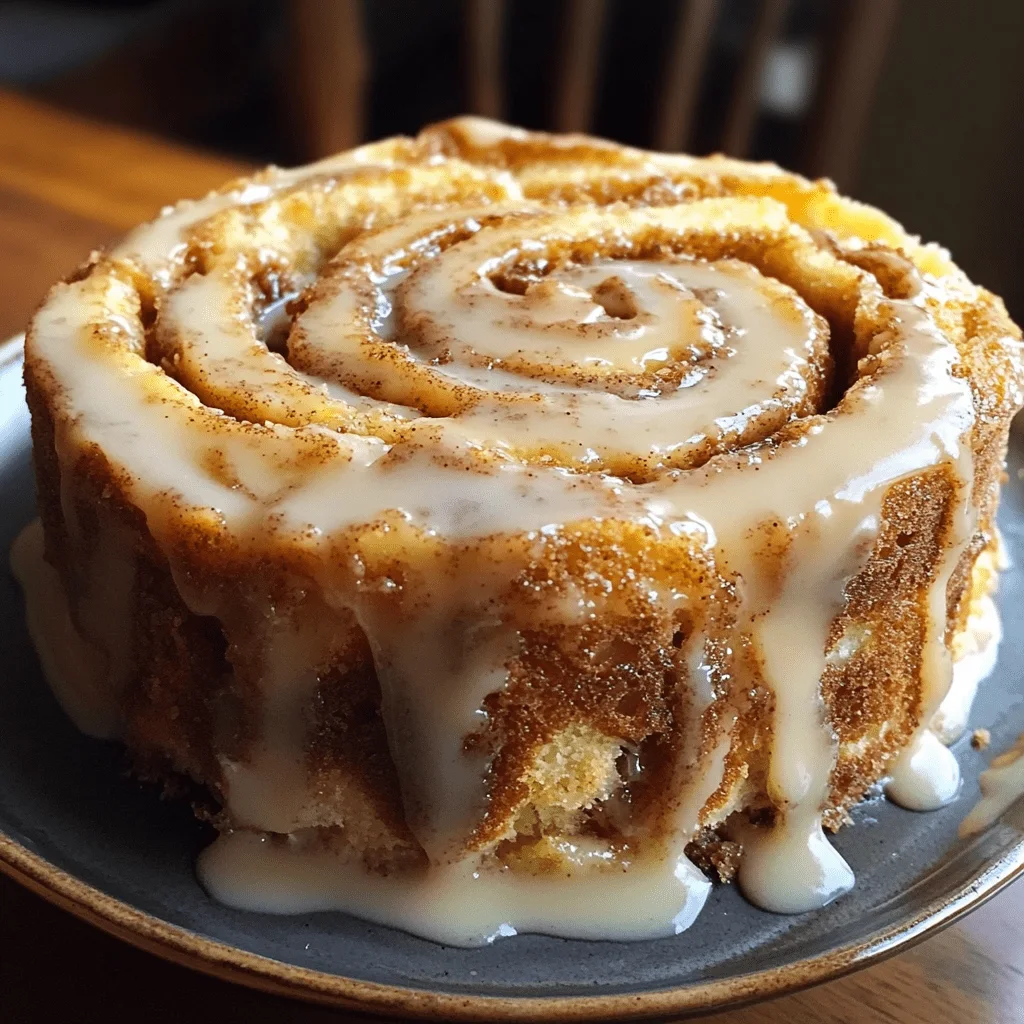
(FAQs)
Here are some common questions and answers to help you perfect your cinnamon roll cake experience:
- Q1: Can I make this cake ahead of time?
Yes! You can prepare the cake a day in advance. Once baked, allow it to cool completely before covering it tightly with plastic wrap or storing it in an airtight container. When ready to serve, reheat individual slices in the microwave for 15-20 seconds or warm the entire cake in the oven at 300 degrees F for about 10 minutes. This method keeps the cake moist and brings out the cinnamon flavor. - Q2: How can I prevent my cake from becoming too dry?
Accurate measurements and proper mixing are key. Make sure not to over-bake the cake; check for doneness after 25 minutes using the toothpick method. If it comes out with just a few crumbs, the cake is done. Another tip is to add a bit more butter or milk to the batter if you live in a dry climate. - Q3: Can I use a different size pan?
Yes, you can! A 9×9-inch pan will result in a thicker cake, so you may need to increase the baking time by 5-10 minutes. For a thinner cake, using a larger pan like an 11×7-inch works too, but check for doneness earlier to avoid overcooking. For more information on the history and uses of different baking pans, check out this article on Wikipedia. - Q4: What can I use if I don’t have brown sugar?
If you’re out of brown sugar, you can use a mixture of white sugar and molasses. For every cup of brown sugar needed, use 1 cup of white sugar plus 1 tablespoon of molasses. Mix until the molasses is evenly distributed. - Q5: How do I know when the cake is fully baked?
The cake should be golden brown on the edges and have a slightly springy texture when touched. If you insert a toothpick in the center and it comes out with a few moist crumbs, the cake is ready. Avoid baking until the toothpick is completely clean, as this may result in a dry cake.
For additional information on various baking tips and substitutions, you can explore Pinterest, which offers numerous ideas for customizing recipes to fit your preferences.
Additional Tips for Customizing the Cake
Want to add a personal touch to your cinnamon roll cake? Here are some creative ideas:
- Add-ins: Try incorporating chopped nuts like pecans or walnuts for extra crunch, or add chocolate chips for a rich flavor twist. Fresh fruit such as chopped apples can also add freshness and a hint of tartness.
- Layered Version: Make the cake more decadent by creating layers. Divide the batter into two portions, spreading half in the pan, adding a layer of cinnamon mixture, then repeating with the rest of the batter and topping.
- Spices and Flavors: Enhance the classic cinnamon taste with additional spices like nutmeg or cardamom for a warm, complex flavor profile. You could also experiment with different extracts, such as almond or lemon, for a unique twist.
To explore more creative variations and get visual inspiration, visit Pinterest’s section on cinnamon roll cake variations. These resources can help you experiment and find the perfect version to suit your taste.
Print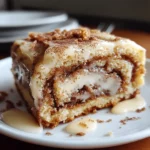
Cinnamon Roll Cake
- Author: Naomi
Description
This cinnamon roll cake is a delightful and easy-to-make dessert that combines all the flavors you love from traditional cinnamon rolls without the extra work of rolling dough. The cake features a soft, moist base with swirls of buttery cinnamon sugar, all topped with a sweet vanilla glaze.
Ingredients
Bottom Layer:
3 cups all-purpose flour
1 ½ cups milk
1 cup white sugar
2 eggs
4 teaspoons baking powder
2 teaspoons vanilla extract
¼ teaspoon salt
¼ cup butter, melted
Top Layer:
1 cup butter, softened
1 cup brown sugar
2 tablespoons all-purpose flour
1 tablespoon ground cinnamon
Glaze:
2 cups confectioners’ sugar
5 tablespoons milk
1 teaspoon vanilla extract
Instructions
Preheat oven to 350 degrees F (175 degrees C). Grease a 9×13-inch baking pan.
Mix 3 cups flour, milk, white sugar, eggs, baking powder, 2 teaspoons vanilla extract, and salt together in a large bowl until well-combined. Stir in 1/4 cup melted butter. Pour batter into the prepared baking pan.
Beat 1 cup softened butter, brown sugar, 2 tablespoons flour, and cinnamon together in a large bowl until smooth. Drop by spoonfuls over the batter in the baking pan.
Swirl the top layer into the bottom layer with a knife to create a marble effect.
Bake in the preheated oven until a toothpick inserted into the center comes out nearly clean, 25 to 30 minutes.
Mix confectioners’ sugar, milk, and 1 teaspoon vanilla extract in a large bowl until smooth.
Drizzle over warm cake.
Enjoy!
Notes
- Room Temperature Ingredients: For best results, ensure that your butter, eggs, and milk are at room temperature. This helps the ingredients blend smoothly, resulting in a more even texture and better rise in your cake.
- Substitutions:
- Dairy-Free Option: Swap out regular milk for almond or oat milk. Use a dairy-free butter alternative to keep the cake moist.
- Vegan Alternative: Replace eggs with flaxseed eggs (1 tablespoon ground flaxseed + 3 tablespoons water per egg) and use plant-based butter and milk.
- Gluten-Free: Use a gluten-free all-purpose flour blend. Ensure it includes xanthan gum or another binder for proper texture.
- Measuring Flour: For accuracy, spoon flour into your measuring cup and level it off with a knife rather than scooping directly from the bag. This prevents packing too much flour, which can result in a dense cake.
- Swirling Technique: When swirling the cinnamon mixture into the cake, make sure the knife reaches the bottom of the pan for an even distribution. Avoid over-mixing to maintain distinct swirls.
- Testing for Doneness: Begin checking the cake around the 25-minute mark by inserting a toothpick into the center. If it comes out with just a few crumbs, the cake is done. Over-baking can lead to dryness.
- Glaze Variations: To switch things up, consider adding almond extract or a hint of citrus zest to the glaze. If you prefer a thicker consistency, gradually add more confectioners’ sugar until the desired texture is achieved.
- Storage: Keep leftover cake in an airtight container at room temperature for up to 3 days. For longer storage, freeze individual slices in plastic wrap for up to 2 months. To reheat, warm slices in the microwave for about 15-20 seconds.
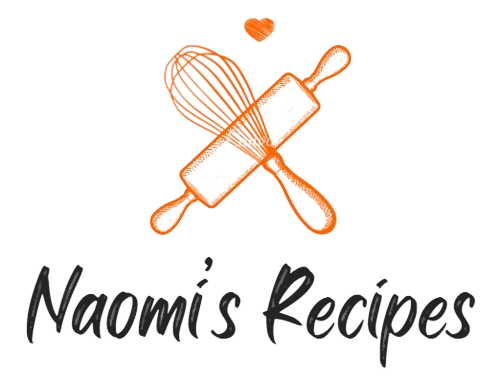


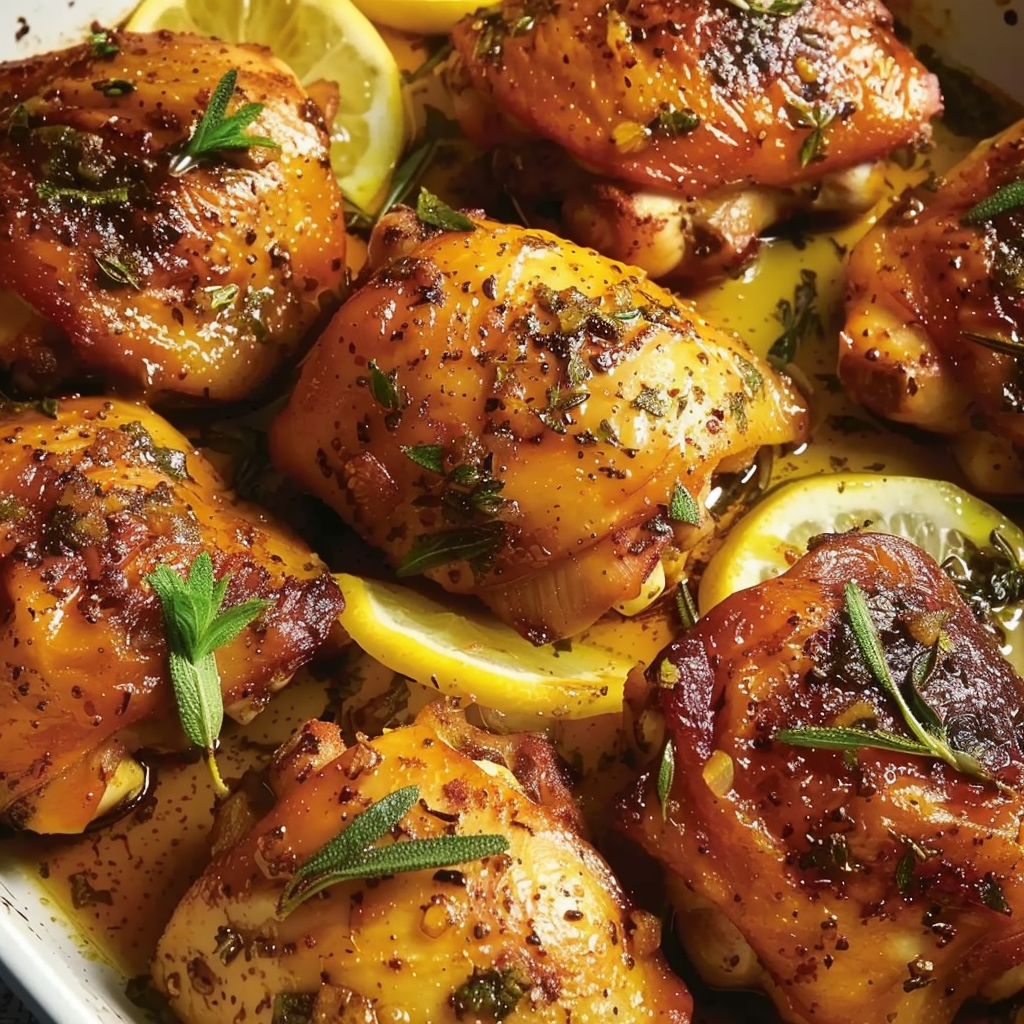
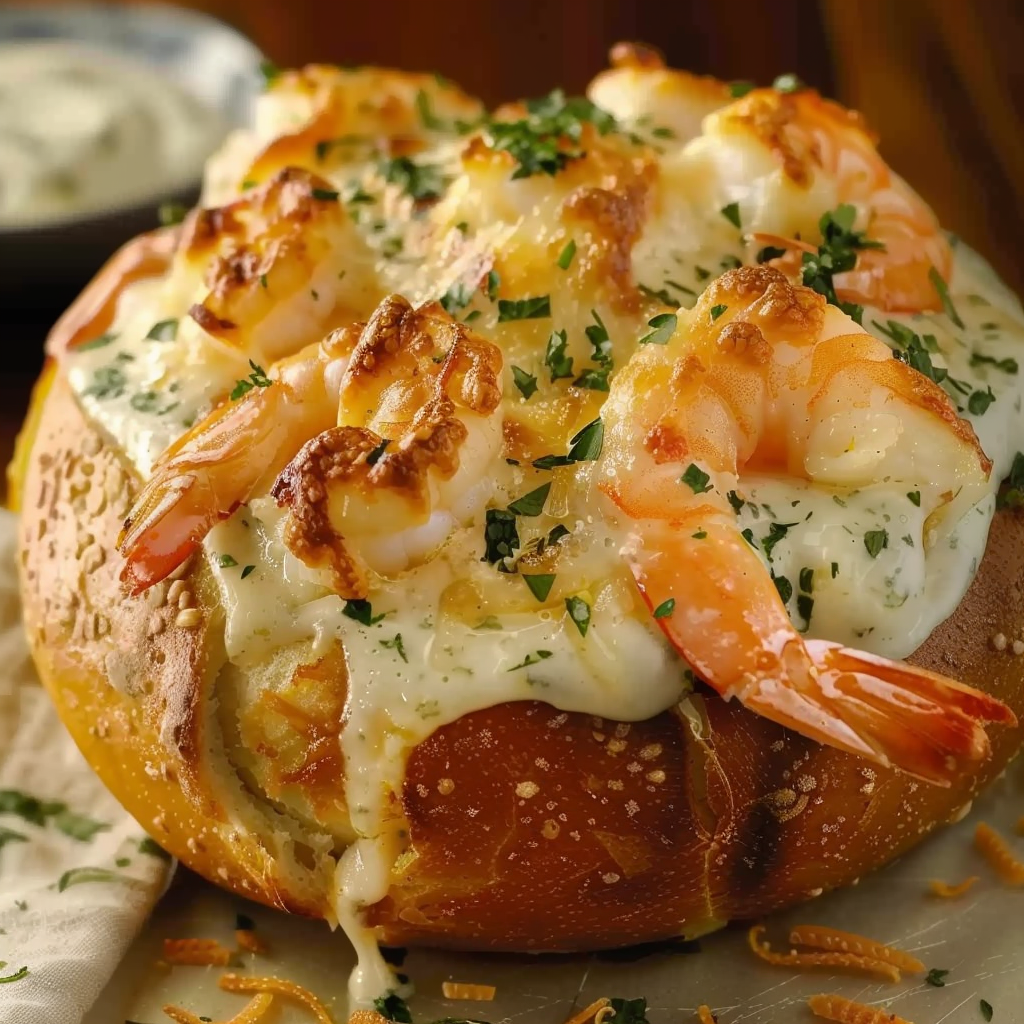
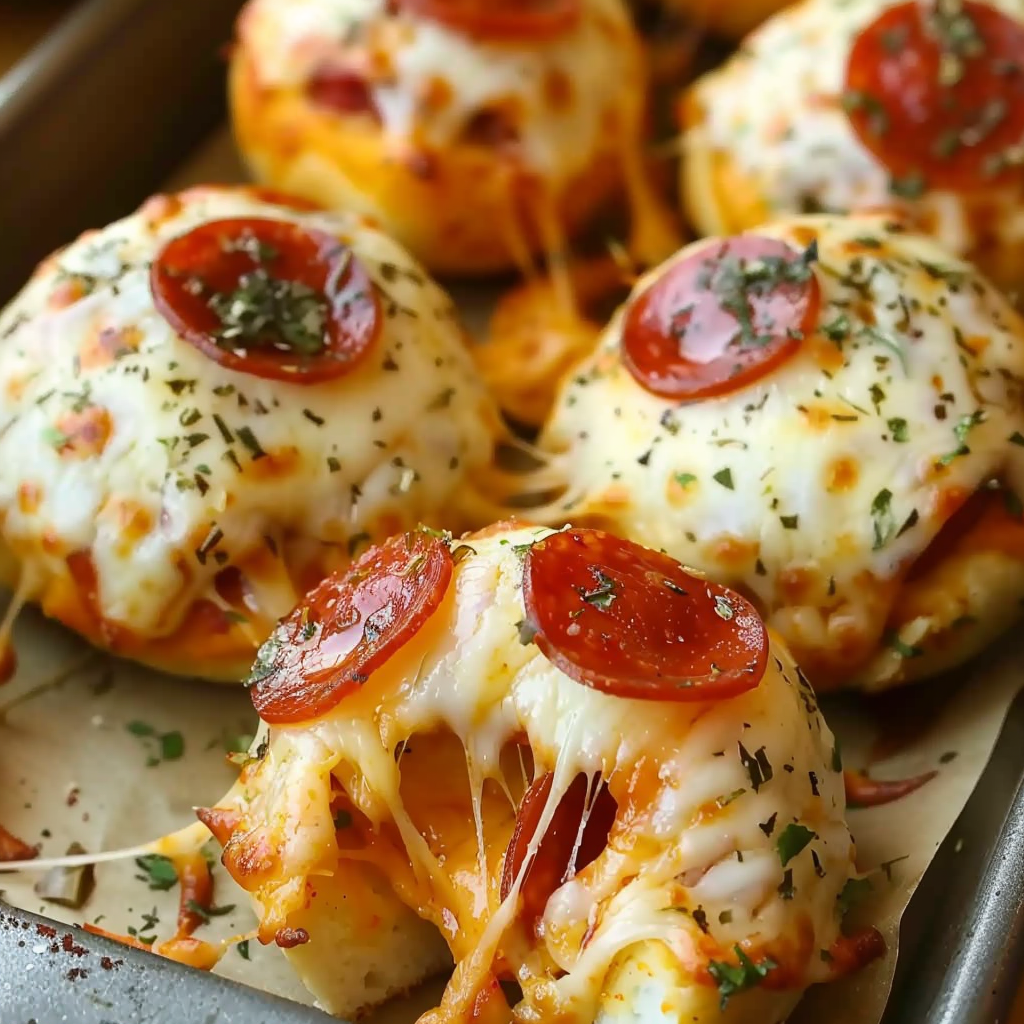


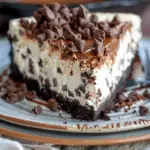
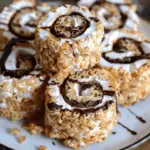
How are you making a round cake that looks wrapped into a circle out of a rectangle cake?
Agree. Why show a picture of a cake that is like nothing described in the instructions?
I was also wondering how you managed to make this cake look like a cinnamon roll. There is nothing in the directions at all, to explain how to do this.
I agree with the shape of the cake, Your recipes indicates 9 x 13 yet your picture is of a round cake which is why I clicked on the recipe. Can you advise how to make the circle version
Barbara
Hello …. Naomi, we all have the same question about the shape of the cake. How do you get it to look like an actual cinnamon roll? You don’t have that in the directions.
I’m thinking she used a springform pan which is what I’m going to use. Most people dont have a springform so a square or rectangular pan is next best thing.